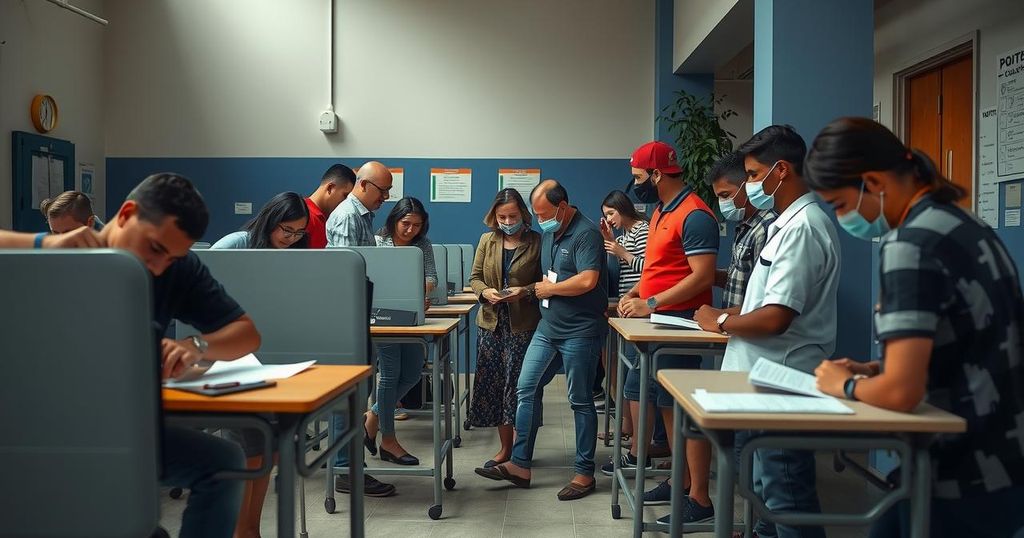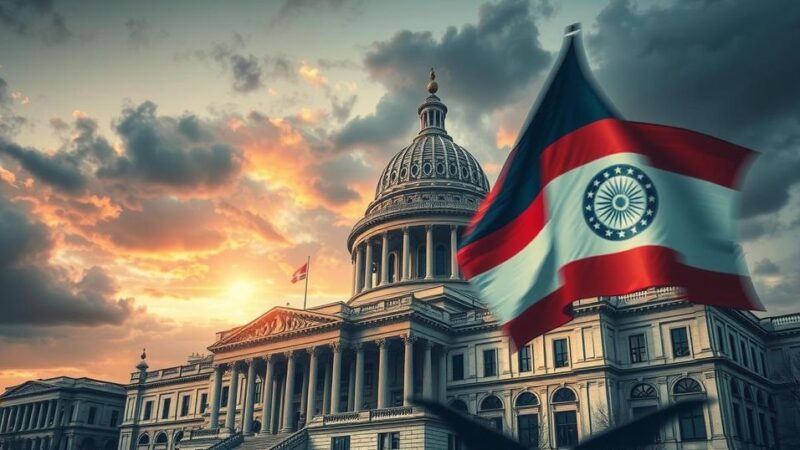Uruguay is set for a general election featuring Álvaro Delgado from the National Party and Yamandú Orsi of the Frente Amplio coalition, with public safety and poverty as major campaign issues. The election reflects the country’s political stability, juxtaposed against turmoil in the region, with high voter turnout expected. Polls indicate a competitive race, possibly leading to a runoff, alongside a constitutional referendum on social security reforms.
In Uruguay, a nation widely regarded as a bastion of democracy in Latin America, the stage is set for a pivotal general election featuring two prominent centrist candidates. Scheduled for Sunday, this election presents Álvaro Delgado of the conservative National Party and Yamandú Orsi from the left-wing Frente Amplio coalition. Both candidates aim to address pressing concerns of poverty and public safety amidst rising crime rates. The elections unfold against a backdrop of political stability and consensus, starkly contrasting the turmoil faced in neighboring countries like Brazil and Argentina. President Luis Lacalle Pou, who will not seek re-election due to term limits, has fostered a business-friendly environment, earning a substantial approval rating among the electorate. His successor, Álvaro Delgado, who has a background as a congressman and former chief of staff, seeks to continue this course of governance. Yamandú Orsi, representing the progressive Frente Amplio, was previously the mayor of a significant city and boasts support from the influential former President José Mujica. His campaign emphasizes social welfare achievements and progressive reforms established during the coalition’s previous tenure. The latest polls suggest a competitive environment with Orsi leading Delgado but potentially lacking the requisite majority for a direct victory, possibly necessitating a runoff. In addition to the presidential election, voters will decide on a constitutional referendum that proposes extensive reforms to the social security system and various legislative positions, underscoring the importance of this electoral event for Uruguay’s governance. Moreover, with nearly 2.7 million citizens eligible to participate, the expectation for voter turnout remains high, reflecting Uruguay’s civic engagement levels that have consistently surpassed 90%. The choice before voters signifies not only a decision about leadership but also the direction of social policies and economic stability in a region experiencing significant political shifts.
Uruguay, with a population of 3.4 million, is recognized for its stable democracy amidst political turbulence observed in other Latin American nations. The upcoming election, which pits the conservative candidate Álvaro Delgado against left-wing contender Yamandú Orsi, underscores a broader agreement among major parties on key issues such as economic policies and social reforms. The country has a rich history of electoral participation and progressive legislation, having enacted landmark laws during the Frente Amplio’s previous governance from 2005 to 2020. This election serves as a litmus test for the current administration’s policies and the electorate’s satisfaction with the status quo amidst rising concerns about crime and poverty.
The electoral contest in Uruguay marks a significant moment for its democratic processes, reflecting a stable yet engaged electorate ready to voice its preferences amidst a backdrop of moderate political competition. As the nation prepares to vote, the outcomes of both the presidential election and the referenda will play critical roles in shaping Uruguay’s future, particularly in terms of social welfare, public safety, and economic direction.
Original Source: apnews.com






